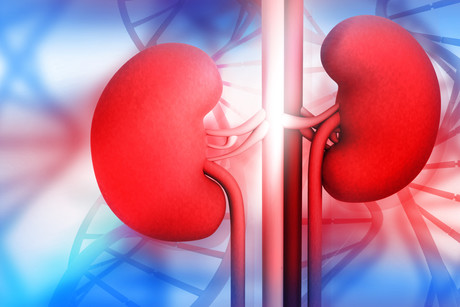One-third diabetes patients to develop kidney disease

There is an urgent need to identify ways of slowing kidney function loss in people with diabetes, as new research has identified that more than one-third of Australians with type 2 diabetes will develop chronic kidney disease.
This also raises the patient’s risk of cardiovascular mortality to “exceptionally high” levels, according to the authors of an editorial published in the Medical Journal of Australia.
Professor Vlado Perkovic, Executive Director of the George Institute for Global Health Australia in Sydney, and Dr Brendon Neuen, a PhD candidate, wrote that “even more striking is that the relative likelihood of cardiovascular disease-related death is substantially higher for younger patients”.
“This is particularly worrying, as the burden of type 2 diabetes in young people is rapidly increasing worldwide; in little more than a decade, the number of people aged 20–39 years with type 2 diabetes has almost tripled, rising from 23 to 63 million,” they wrote.
Clinical trials of interventions for reducing the risk cardiovascular events and mortality in patients with end-stage kidney disease “have not yielded clear evidence of benefit”.
Lipid-lowering therapy is effective for patients with chronic kidney disease who do not require dialysis, and is therefore recommended in practice guidelines, but for those who do require dialysis the evidence is insufficient. Blood pressure-lowering interventions show general cardiovascular benefit, but the trials have been “inadequate” for guiding recommendations. Antiplatelet therapy is complex for people with kidney disease because of increased bleeding risk.
There is hope in new glucose-lowering agents which reduce the risk of adverse cardiovascular events and may slow the progression of kidney disease in people with type 2 diabetes.
Perkovic and Neuen also recommended that new treatments alone were not enough to reduce the burden of diabetes and its complications, and called for policies that “recognise the environmental and behavioural drivers of diabetes and other chronic health conditions”.
$1bn vaccine and antivenom manufacturing facility opens
A $1 billion cell-based influenza vaccine and antivenom manufacturing facility has opened in...
National concussion clinical guidelines now available
The first Australia- and New Zealand-specific guidelines for all forms of concussion — from...
Doctors criticise "risky prescribing agenda"
The AMA and RACGP have expressed disappointment in the Pharmacy Board of Australia's...




![[New Zealand] Transform from Security Awareness to a Security Culture: A Vital Shift for SMB Healthcare — Webinar](https://d1v1e13ebw3o15.cloudfront.net/data/89856/wfmedia_thumb/..jpg)
![[Australia] Transform from Security Awareness to a Security Culture: A Vital Shift for SMB Healthcare — Webinar](https://d1v1e13ebw3o15.cloudfront.net/data/89855/wfmedia_thumb/..jpg)



